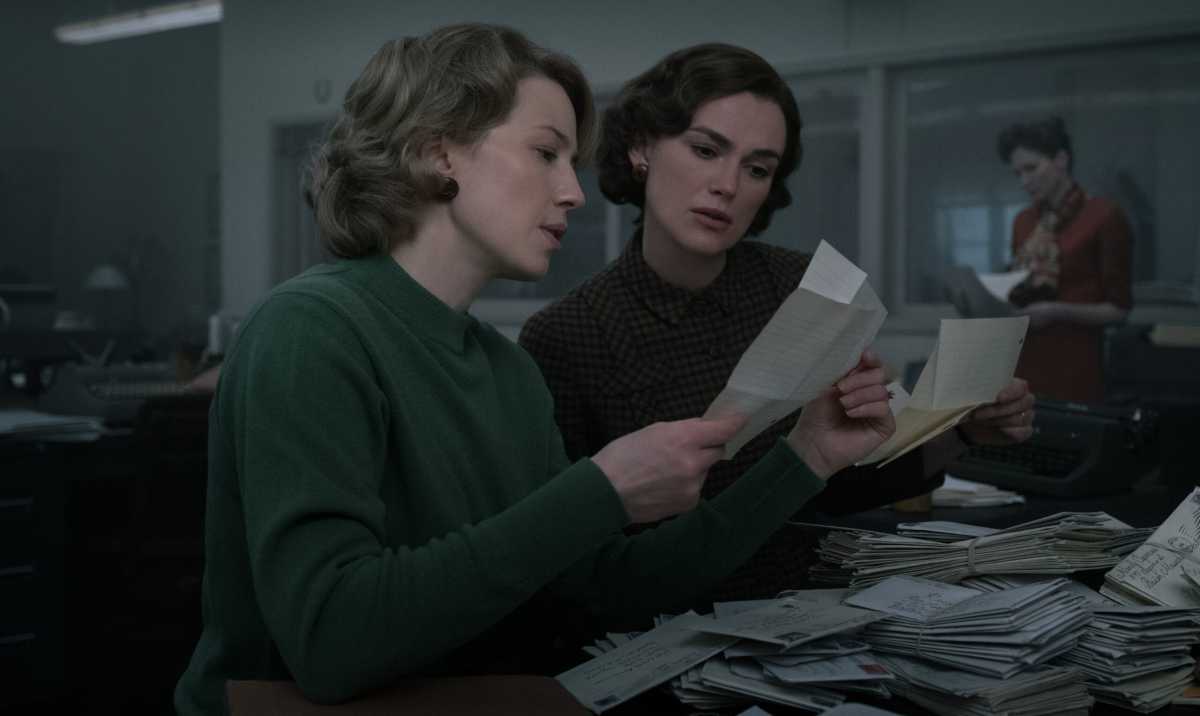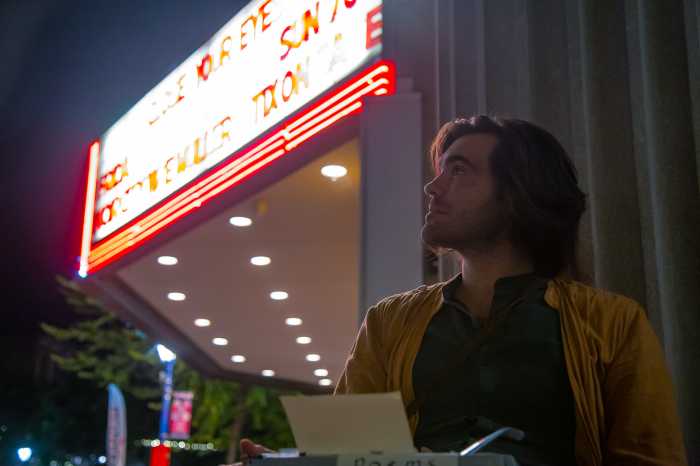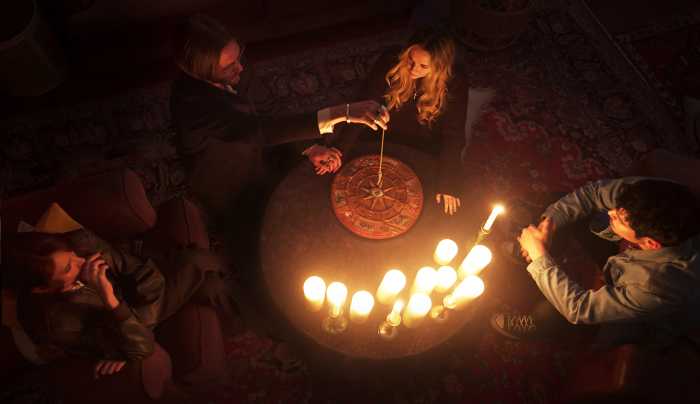True crime is a forceful genre in its own right—there are shows, movies, podcasts, books and even games dedicated to the happenings in that dark part of our world, but with the new film ‘Boston Strangler,’ the idea behind the mystery of who terrorized women in the city in the 1960s is not all that it seems.
It’s a case with many twists and turns (like many others of the genre), but it also is one highly embedded in a city—from its inhabitants, to the media, to law enforcement and everyone in between. That’s partially why writer/director Matt Ruskin decided to make the film in the first place, having grown up in Boston and hearing about the case, he didn’t quite know all of the details outside of its impact.
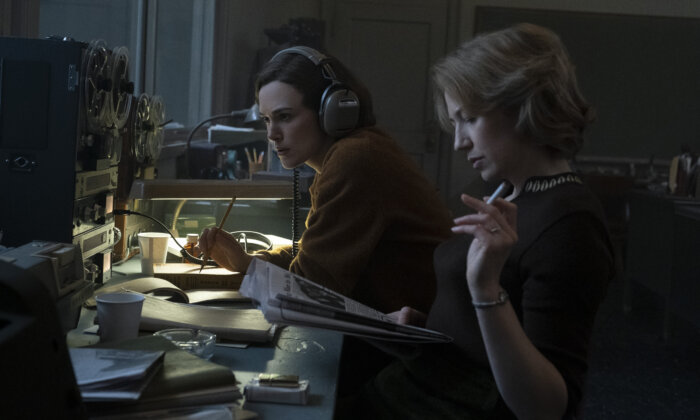
“I had always heard about the Boston Strangler, but I really didn’t know anything about the case,” Ruskin explains at a global press conference. “Several years ago, I started reading all that I could and discovered this incredibly layered murder mystery that was full of twists and turns. And, in many ways, was as much a story about the city at the time. And so, I was just completely gripped by the case. And when I discovered these reporters, Loretta McLaughlin and Jean Cole, I found out that they were one of the first reporters to connect the murders.”
McLaughlin and Cole are the center point of the film, mainly McLaughlin played by Keira Knightly, as we see her being the first in the world of media to start making some connections between the separate murders. Eventually, her editor brings on Cole, played by Carrie Coon, and the story really begins to take off when they realize they may be dealing with a serial killer.
“I just thought it was a really interesting way of telling the story of a serial killer but through the point-of-view of these two female journalists,” Knightley explains. “And the fact that you’ve kinda got a case where most people didn’t know that it was two women who broke the story, that they’ve largely sort of been erased from the history of this case, I thought was really interesting.”
Coon agreed: “That was the most shocking part of it for me, that these women were so integral to breaking the case and to forcing the police departments to share information. And their names are never mentioned in association with it. That was really shocking to me.”
The film shows the struggle that both McLaughlin and Cole face in the 60s as professional women. Knightley’s character goes to talk to cops at a bar to get statements. It’s then repeatedly asked to her editor after the fact if she was there to seduce them instead of reporting. Coon’s character mentions later down the line that after some of her first stories were published, she and her husband took their number out of public information because of all of the harassing calls.
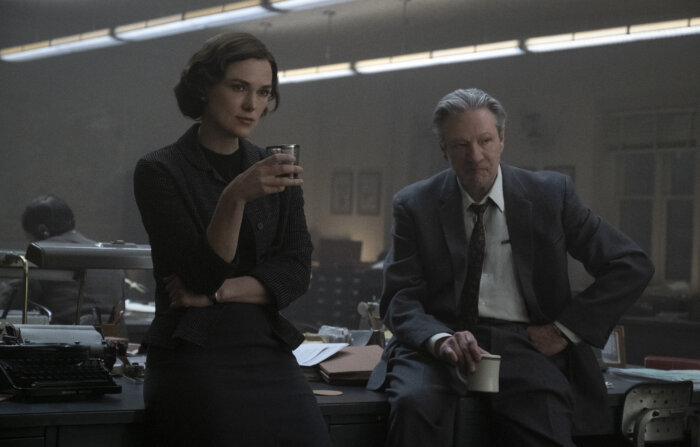
So, making the vantage point from the female reporters was not only a factual stepping point for Ruskin-—it was essential in a story about how women’s voices are stifled for just existing and working. Even fatally.
For research, Ruskin had to dig deep and he was able to connect with one of Jean Cole’s daughters after finding her name in the obituary of the late reporter. After connecting, the writer/director then had access to both reporter’s families and was able to connect the dots in relation to the Boston Strangler case.
“The more I got to know about these women and reporters, the more I grew to admire them and just felt incredibly compelled to try and tell their story,” adds Ruskin.
Knightly adds, “Well, I think for me, this whole film is really a love song to female investigative journalists. And really highlights how important it is to have women in position of power in storytelling. I don’t know that their male colleagues would have seen the importance of it. So I think it’s wonderful to be part of something that is really highlighting how important it is to have as many good female journalists as you possibly can for the safety of our communities.”
There is a little (and just a little) support from male counterparts, including from McLaughlin and Cole’s editor, Jack Maclaine, played by Chris Cooper and Detective Conley from the police department, played by Alessandro Nivola.
Cooper for one, has a personal connection to this case. The actor was able to “rub shoulders” with Eileen McNamara, a Pulitzer Prize-winning journalist who worked on the Boston Globe in the 70s and 80s. Loretta was a mentor to Eileen, and Eileen directed him to source material that was so specific for the 60s newsroom, from what happens politically, to terminology, and the hierarchy within the paper.
At first, Maclaine is dismissive to Loretta and even says “These murders are nobodies.” Loretta comes back and says, “These are the people who read your paper. The working class.”
“I think that was kind of a little wake-up call for Jack. It was just a quick little setup, but I think that made an impression on him,” explains Cooper.
With Detective Conley, Nivola plays a cop who is trying to straddle the line of trying to keep the reputation of his department, along with solving the case. Luckily, his character chooses the latter in most scenes when it comes to working with McLaughlin and Cole.
“The relationship between the media and law enforcement is always a complicated one because on the one hand, they depend on each other.
On the other hand, obviously, the police department doesn’t wanna be exposed in an unfavorable light for, you know, being dilettantish in the way that they pursue these cases. And so, in the case of this story, obviously the reporting that was being done by these two was really jeopardizing the reputation of the department, which is why the stakes were so high for Conley to be this deep-throat kind of figure in the whole thing.”
‘Boston Strangler’ is film set in the true crime genre, but it showcases so much more about what really goes on behind closed doors from professional departments, to domestic situations. It’s a thriller, it’s a mystery, and it’s also a provocative investigation into why stifled voices may hold the key to breaking something important open.
‘Boston Strangler‘ premieres on Hulu March 17.



